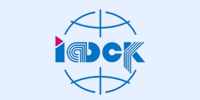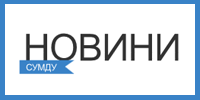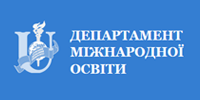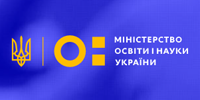Associate Professor of the Department of Foreign Languages and Linguistics, Iryna Lyashenko, took part in a number of events dedicated to ChatGPT issues, including TEAP Chatter, organized by the special interest group on testing, assessment, and diagnostics BALEAP (British Association of Teachers of English for Academic Purposes), a professional organization for teachers and English for Academic Purposes (EAP) researchers.
The meeting was attended by lecturers from universities in Great Britain, Japan, Spain, Italy, Taiwan, and others, where the implications of using ChatGPT for the professional development of university lecturers were discussed in groups. The event provided an opportunity to discuss the potential uses of ChatGPT as a resource for language learning, language modeling, vocabulary development, and writing assistance. The webinar explored how ChatGPT can be used to develop teaching strategies, improve language modeling skills, provide access to language data and resources, facilitate collaboration, and support professional development. During the ChatGPT event, three questions were asked related to its impact on teacher development and education. ChatGPT responses indicated that it can serve as a powerful tool for improving teachers' language skills, developing effective teaching strategies, providing accurate feedback, and keeping up with the latest developments in language learning and teaching. The webinar encouraged educators to explore ChatGPT and similar tools and consider how to incorporate them into their teaching practice.
The second webinar, "Using ChatGPT to Facilitate Learning and Instruction," was presented by Dr. Chris Stillwell, Brent Warner, and Dr. Mark Warschauer and sponsored by the US Embassy. The event took place on May 13, 2023, and focused on how ChatGPT, a large language model based on the GPT-3.5 architecture, can be used to facilitate learning and instruction. The presentation provided an overview of ChatGPT, its strengths and weaknesses, and its potential applications in education. Participants were encouraged to engage with ChatGPT on a topic of their choice and use it to generate paragraphs, evaluate sources, brainstorm, summarize, simplify, and evaluate writing. The presentation demonstrated how ChatGPT can work as a "thought partner", answer generator, assignment helper, text summarizer, text editor, quiz generator, and more. The event was aimed at educators who are interested in using technology to improve their work.
However, ChatGPT, like any other technology, has its contradictions when it comes to academic integrity. Although ChatGPT can be a useful tool for improving learning and teaching, there are concerns about its potential impact on academic integrity. One of the main controversies is that ChatGPT can be used to create text that could be considered plagiarism if not properly flagged. Because ChatGPT is capable of generating text that closely resembles human writing, it can be difficult for instructors to detect whether a student has used it for their work. This may lead to academic dishonesty if the student presents the produced text as their own original work.
During the webinar organized by the CSCP of Sumy State University, Artem Artyukhov and Yuriy Volk discussed the potential pitfalls of violating academic integrity and the working principles of ChatGPT. The main idea behind the event was that while ChatGPT can be a valuable tool to enhance teaching and learning, it is important to use it responsibly and carefully, ensuring that its use complies with academic integrity policies and standards.






 eng
eng  укр
укр 






